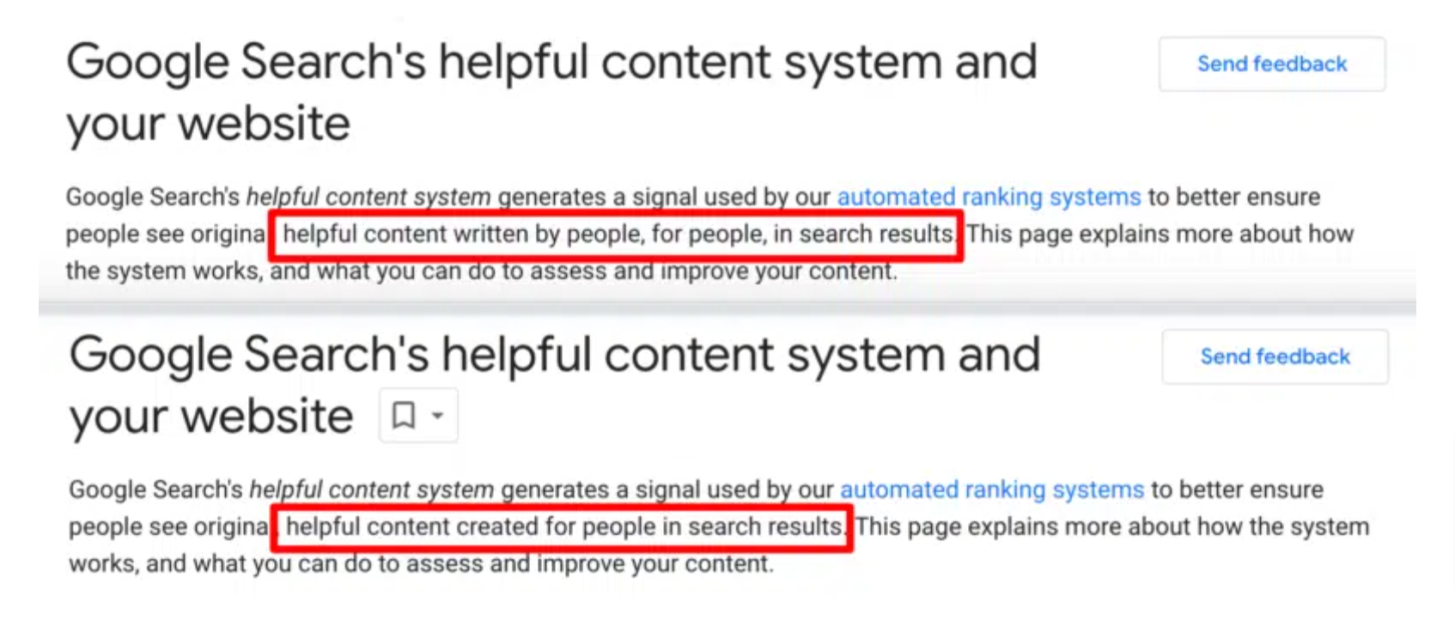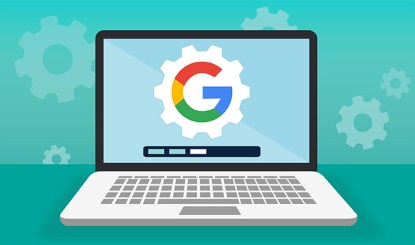Google’s Helpful Content Algorithm System Rolls Out a September Update
For just about any SEO strategist, and likely any company with a website, an algorithm update sends panic straight to our hearts. While Google has shifted its focus to improving the core algorithm with smaller updates rather than releasing major updates like in the past, the consequences can still be significant. Find out if your site and business could be affected.
Keyword Stuffing, Link Overload, and the Crackdown by Google
First launched in mid-2022, the algorithm update began targeting websites with low quality content seemingly written for the sole purpose of search engine ranking. While the marketing community has seen the likes of content-targeted updates before, (Panda, Penguin, RankBrain, Bert), each of the past algo updates focused on a specific part of the content – duplicate, spammy links, shallow content, and pages with complete lack of content, and usually on a page level. This update is sitewide and does exactly what its name says, insists on content that is helpful to its readers.
Is it AI or AI-ish
Late last week, Google announced the September 2023 Helpful Content System update is expected to be completely rolled out by the end of this month, with some interesting changes to the first rollout. In the original update statement, Google warned against using AI-generated content on your website. However, according to Search Engine Journal the amended update appears to pull back on that prior warning written into the original guidance. By removing the words “written by people,” from the Google guidance statement, and instead moving the focus to “created for people,” it appears Google has reconsidered its stance on AI-generated content.

Is Google a Self-Serving Behemoth?
The search engine giant’s 180 regarding AI may foreshadow things to come. In May, Google threw its hat into the AI ring with the announcement of Gemini: Google’s alternative AI platform that could potentially rise above existing AI systems like OpenAI’s ChatGPT.
The forthcoming launch of Google Gemini promises a significant advancement in natural language processing (NLM) that can generate original text, as well as write music, code, and generate original images. There are rumblings in the marketing world that Google will eventually offer its AI tools for a price, as it has started to test in other countries. That alone could explain the loosening of AI restrictions in the recent update.
But wait, there’s more!
Hosting Third Party Content: Google warns that using third-party content on your website or subdomain can affect your visibility. You probably aren’t guilty of this if it sounds odd. Google noted that it’s mainly targeting domains that are renting out their subdomains and folders to help microsites increase domain authority. Many of these microsites tend to be used for a wide variety of reasons with no real oversight – think pbns and link traps. Does that mean you need to get rid of anything that wasn’t created by your team? No, if you are hosting content that is related to your site’s purpose and is helpful to your audience you have nothing to worry about. If, however, you are hosting content that has nothing to do with your business or would be irrelevant to your audience, you may be at risk.
Faking Freshness: Often content is updated based on new information. Think about blogs written about the ever-changing Google Algorithm. Content created around the original rollout of Helpful Content System could be amended to add this new information. When content is updated (especially blogs) and reposted, the publish date is updated and Google will take notice. The September 2023 update cautions against changing the dates of content without substantial information added or changed. Adding a few words and hitting republish will get you in trouble.
So, What Do I Need to Do Now?
Is this update really any different than the ones we’ve seen in the past? The answer is Yes + No. Google’s algorithm updates have consistently placed the user experience as the top priority. In that way the Helpful Content System is in line with the changes we have seen in the past and will continue to see. What makes this rollout different is the straightforward aspect. Google tends to keep its algorithm details close to the vest. Marketers watch for signals and run tests to gauge deliverability, return, and effectiveness. Google is telling us we’re tired of seeing a bunch of fake things, you’re now being penalized for trying to pull one over on us.
And maybe a little AI-generated content is ok, as long as it’s high quality and helpful, which we happen to be getting ready to sell with Gemini….
Does this information make your head spin? Are you concerned about your content? Reach out. We are content marketing specialists and can help you navigate the stormy seas of algo updates.

